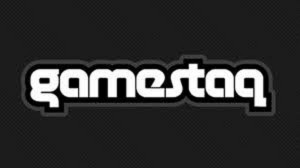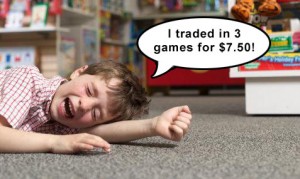NE Interview: Gamestaq CEO/co-founder Joseph Gindi

CEO and Co-Founder of Gamestaq.com discusses the used game market, downloadable add-ons, and how pricing of secondhand titles is getting out of hand.
The used game market is slowly and slowly getting more and more out of hand. If you plan on selling a game to retail giant GameStop, for instance, chances are that you’ll get less than a fourth of full price for it. This is fairly ridiculous considering that GameStop sees no problem in taking what they paid five dollars for and reselling it to those same gamers who support them for three, four, or even five times that. Some may say that you can’t blame companies like GameStop for this, because it indeed takes two to tango, but the fact of the matter remains that many gamers just don’t have much a choice when it comes to selling their used games.
That, however, is about to change because of a company called GameStaq. Joseph Gindi is the CEO and co-founder of the company which offers gamers an alternative to places like GameStop, and it allows you to get upwards of 70 or 80% of retail price, as opposed to the usual 30 to 40%. I had the privilege of interviewing Mr. Gindi, and I asked him a variety of questions on his company, his outlook, and the industry as a whole. Check it out after the break…
There are a lot of problems in the gaming industry right now, but one of the key issues that people are facing is the fact that companies involved in the gaming business seem to be becoming more and more concerned about money and less concerned about working for the customer. Is Gamestaq attempting to fix this issue?
From the retail level, GameStaq is looking to fill that gap. The traditional retail world is very tough, with shrinking margins and competition. GameStaq is taking a new approach, starting with used console games. Standard retailers need to perform expensive inventory and stocking, which becomes very cost prohibitive and necessitates high markup. GameStaq is looking at it from a different angle, where there are no extra costs so we can give back to sellers and buyers in terms of fairer pricing.
In terms of the actual value of a game, what do you think the percentage drop between the cost (to the consumer) of a new game and a used game should be? Many new games sell for fifty or sixty dollars, with their used counterparts selling for two or three dollars less. Is this a good shift in value?
In broad terms, the pricing is simply not fair value. The shift in value is driven by the market,, which currently sees little or no real depreciation between new and used games. That is the wonder of digital games, that nothing actually physically depreciates, just the demand up or down drives the pricing. Brick and mortar retailers are of course trying to make the most money possible, and if buyers are willing to pay big markups for used games, then they will, often because they don’t have a good alternative.
Our model is about fairness. We aggregate fair pricing for all of our games that applies to both buyers and sellers. They both benefit in an equal way through a fair process and a fully transparent and secure transaction.

Now, using retail giant GameStop as an example, you obviously feel it isn’t fair for them to purchase a used game from a consumer for a few dollars and then re-sell that same game for ten times what they paid. What’s your final goal as a game-selling company? Do you think it would be possible to implement this model in a physical retail outlet?
Our goal as a game marketplace is to experience growth based on positive word-of-mouth regarding our fair and secure process. We aim to provide a sleek and simple way for users to complete used game transactions with no dealing, negotiations, or hesitation about how to price a game. Our model could not be duplicated in a physical retail outlet. We function as a peer-to-peer model with no overhead and a transparent process that simply could not be done in a brick and mortar setting.
If there was one thing you’d change about the gaming industry as it is right now, what would it be?
There is currently some buzz in the industry from major game publishers that they are unhappy with the sale of used games on the market. Some feel they are being cheated out of game sales, and they are taking steps to combat used sales. We feel this leaves a bad taste in the mouths of gamers. After purchasing a game for $60, they own that property and should be able to sell it at their discretion, something they can do with nearly any other product. There are no other industries where the original manufacturer tries to tell the consumer they can’t resell the product after the fact. This is puzzling to us, and we hope more publishers will see this issue from a different angle and change tactics.
If there is one thing you think the gaming industry is doing right, what is it?
We feel the major publishers are producing some really great content. 2010 was a great year for gaming, with big titles such as Red Dead Redemption, Halo Reach, Call of Duty-Black Ops, and Gran Turismo 5 leading the way. There were dozens of great, immersive titles this past year that really show publishers are committed to producing the best product.
We anticipate 2011 being just as hot for titles, with games on the horizon including Kill Zone 3, Little Big Planet 2, Duke Nukem Forever, and Zelda for the Wii. We discuss many industry trends including our lists of top titles at our blog, http://blog.gamestaq.com/.
What do you think the best way to “fix” the gaming industry would be?
While we don’t feel the industry is necessarily broken in a fundamental way, we do see some complaints regarding add-on purchases for games. Publishers should be careful when releasing their games to be sure that add-ons contain real value and are not just an extra purchase that really should have been included with the original game.
The gaming industry as a whole is moving towards the right direction with digital content. We believe many consumers still want to buy packaged games, not just downloads, but we certainly see where the longer term future is headed.
~~~~~~~~~~~~~~~~~~~~~~~~~~~~~~~~~~~~~~~~~~~~~~~~~~~
Huge thanks to Allie, Kellie, Belinda, and Michael for setting up the interview, and thanks to all the folks at Gamestaq.com for playing a part in it! Also, thanks to Mr. Gindi of course for answering our questions. Best of luck with the company, guys!
How about all of you readers? Do you suppose the gaming industry is a little “broken” in terms of the pre-owned market? I know I do, but I’d be more interested in hearing all of your thoughts. Take part in the discussion below!
~Austin